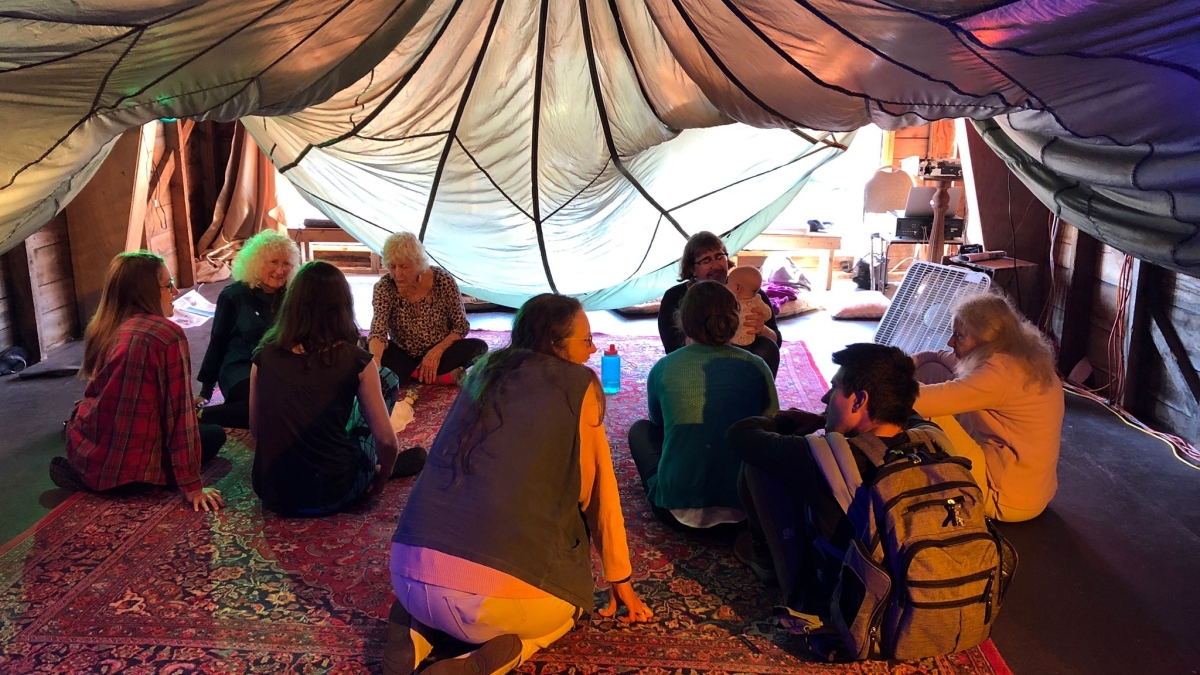Theatre for Youth students present work as part of Barn Arts Collective residency in Maine

"Breath” is an abstract, performative experience for pre-crawling babies and their caregivers that was developed by two ASU theatre for youth students as artists-in-residence at the Barn Arts Collective.
Two Theatre for Youth students in the ASU School of Film, Dance and Theatre were accepted as artists-in-residence at the Barn Arts Collective in Maine, where they spent a week in a small barn immersing themselves in the community to devise a 30-minute long theatre experience for babies and their caregivers.
The project started in spring 2018 when graduate students Kelly Fielder and Thomas Petrungaro took a devising sequence course with Herberger Institute Professor Michael Rohd. During the course, they created a five-minute scene inspired by a newspaper article.
“The article that we found was titled ‘Baby Born on International Flight,’” Fielder said. “It was a beautiful and heartwarming story about a woman who went into early labor while traveling overseas to visit her family.”
The pilots were unable to safely perform an emergency landing, so the people on the plane came together to bring this baby into the world, according to Fielder. The students said their scene shifted the focus from the people on the plane to the baby, whom they considered the most important player.
“That one performance in class wasn’t enough for us,” Fielder said. “We were filled with this drive to make the show longer and more meaningful.”
So, when they were accepted to the Barn Arts Collective, they decided to develop the work and created “Breath.”
A performance about change, flight and growth, “Breath” is an abstract, performative experience for pre-crawling babies and their caregivers.
“Culturally, babies are not invited into traditional theatre spaces, and this production extends a hand across those borders to create time and space to accept those families exactly where they are,” Fielder said.

